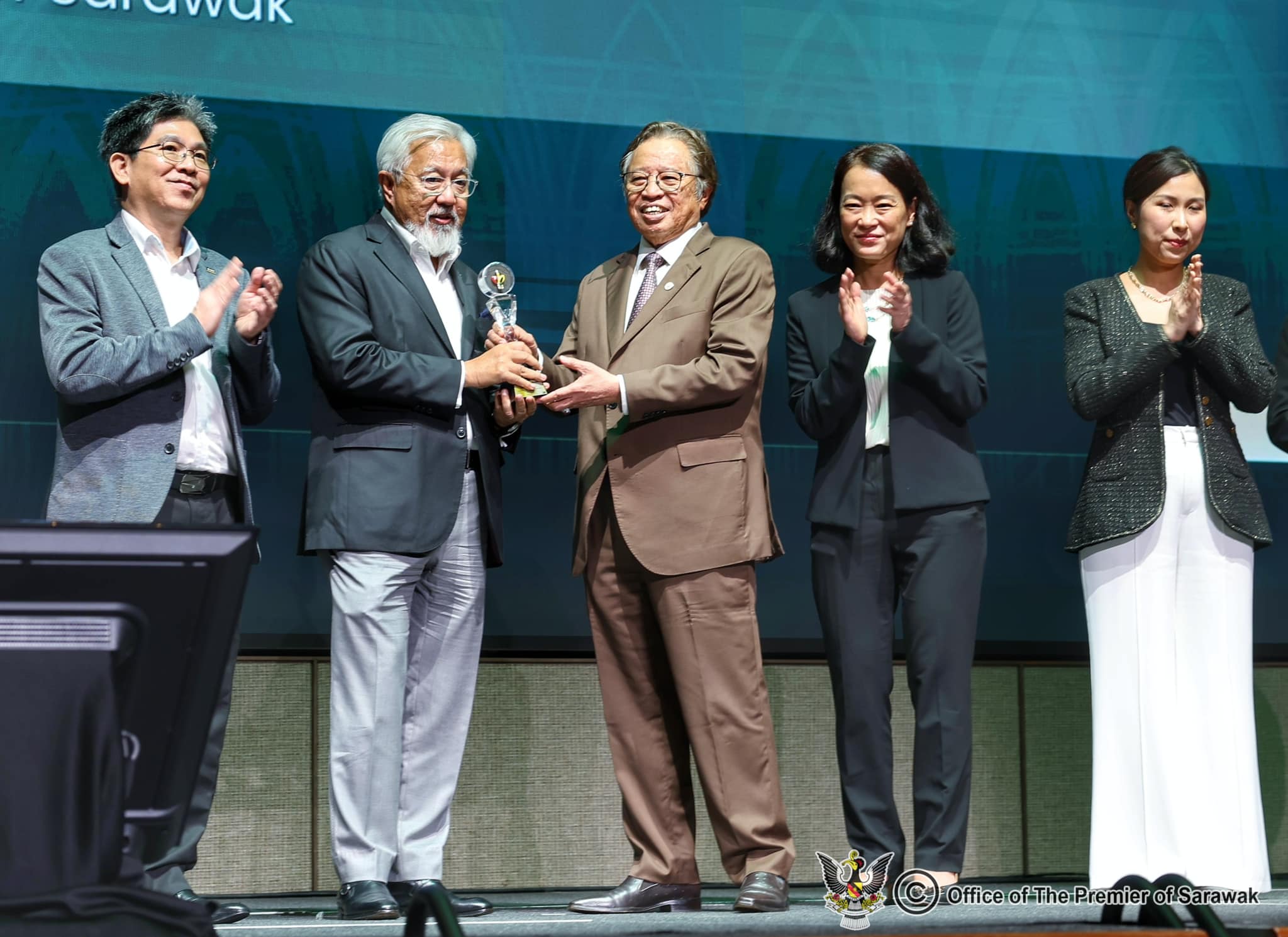NOVEMBER 2024
Sarawak Targets Doubling GDP By 2030 With Sustainable Development Strategy

KUCHING, Nov 19 — Sarawak is setting its sights on ambitious economic growth, aiming to double its GDP from RM140 billion to RM280 billion by 2030 under the Sarawak Post-COVID-19 Development Strategy 2030 (PCDS 2030).
Premier of Sarawak, Datuk Patinggi Tan Sri (Dr.) Abang Haji Abdul Rahman Zohari Tun Datuk Abang Haji Openg, outlined the roadmap during the Advancing a Sustainable Future - Spotlight on Sarawak event at Sheraton Hotel, Kuching.
“This target is ambitious—very, very ambitious. People ask me if we can achieve it, but when you sail a ship, you must have a destination. Without it, you’ll go astray,” the Premier remarked. “Our ship is well-equipped, and we are prepared to face challenges along the way, including storms and heavy waves.”
The Premier emphasized that the strategy is not merely about growth but about ensuring sustainability and inclusivity. “The three pillars of PCDS 2030 are economic prosperity, social inclusivity, and environmental sustainability. Innovation, digital infrastructure, and education are the key enablers of this vision,” he added.
Sarawak’s pioneering approach to sustainability, particularly in carbon trading and carbon capture, utilization, and storage (CCUS), has caught the attention of the federal government.
The state enacted the Environment Reduction of Greenhouse Gases Emission Ordinance 2023, making it the only state in Malaysia with dedicated carbon trading legislation. “The federal government is studying our legislation and intends to introduce similar laws during the upcoming parliamentary session in December,” said the Premier.
“This recognition underscores Sarawak’s leadership in addressing climate resilience. Our ecosystem for sustainability is already being implemented, and we are setting an example for the rest of Malaysia,” he added.
Sarawak is leveraging its renewable energy resources, with hydropower accounting for 70% of its energy mix. “Our energy mix aligns economic goals with sustainability. But recognizing potential challenges like drought, we are diversifying into solar energy, including floating solar installations and land-based solar farms,” said the Premier.
He cited global best practices, such as Abu Dhabi’s solar farm innovations, as inspiration for Sarawak’s sustainable energy strategies. “Advancements in technology have dramatically reduced costs, making renewable energy more accessible. With initiatives like these, Sarawak is securing a sustainable future for generations to come,” he noted.
Sarawak’s Sustainability Blueprint, featuring 10 strategic thrusts, adopts an integrated approach to addressing climate change and aligning initiatives across all sectors. “This blueprint ensures that we not only grow but do so in harmony with our environment,” the Premier said.
By combining natural resource conservation with initiatives like carbon trading, Sarawak is creating new revenue streams for both the private sector and the state. “Our forests are not just a source of water; they also play a crucial role in carbon trading, offering significant economic and environmental value,” he explained.
The Premier reiterated the importance of collaboration among government, private sectors, and communities in achieving Sarawak’s ambitious goals. “Social inclusivity ensures that everyone has a role in expanding the economic pie,” he said.
The event was also attended by Chairman of Development Bank of Sarawak (DBOS), Tan Sri Datuk Amar Haji Mohamad Morshidi Abdul Ghani; Deputy State Secretary of Sarawak (Economic Planning and Development), Dato Sri Dr. Muhammad Abdullah Haji Zaidel; Group CEO of Sarawak Energy Berhad, Datuk Haji Sharbini Suhaili; and Chairman of RAM Holdings Berhad, Datuk Kamaruddin Taib.